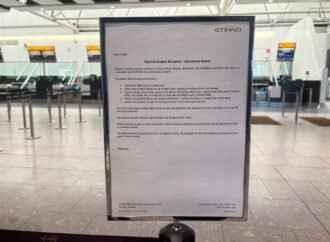In today’s fast-paced digital world, data is being generated at an unprecedented rate. From social media interactions to online shopping transactions, every action leaves a digital footprint. Companies and governments have realized the immense value hidden within this data, and predictive analytics has emerged as the new trend to unlock its potential. Predictive analytics is
In today’s fast-paced digital world, data is being generated at an unprecedented rate. From social media interactions to online shopping transactions, every action leaves a digital footprint. Companies and governments have realized the immense value hidden within this data, and predictive analytics has emerged as the new trend to unlock its potential.
Predictive analytics is the use of statistical algorithms and machine learning techniques to analyze historical data and make accurate predictions about future events or behaviors. By leveraging this powerful tool, businesses and governments can gain valuable insights into consumer behavior, preferences, and trends.
One of the key applications of predictive analytics is in promoting items for companies. By analyzing past purchase patterns, online browsing behavior, and demographic information, businesses can tailor their marketing strategies to target specific customer segments more effectively. For example, an e-commerce company can use predictive analytics to recommend personalized product suggestions to individual customers based on their browsing history and purchase patterns. This not only enhances the customer experience but also increases the likelihood of conversion and repeat purchases.
Moreover, predictive analytics can help companies optimize their inventory management and supply chain operations. By analyzing historical sales data, market trends, and external factors like weather conditions, businesses can make accurate demand forecasts and adjust their production and distribution accordingly. This reduces the risk of overstocking or stockouts, leading to cost savings and improved customer satisfaction.
Similarly, predictive analytics has significant implications for government agencies in promoting consumerism. By analyzing vast amounts of data from various sources such as social media, online forums, and public records, governments can identify emerging trends, anticipate public needs, and tailor policies and services accordingly. For instance, predictive analytics can help government agencies identify areas with high demand for specific services like healthcare or transportation and allocate resources accordingly. This ensures efficient service delivery and enhances citizen satisfaction.
Furthermore, predictive analytics can be instrumental in detecting and preventing fraudulent activities. By analyzing patterns and anomalies in data, governments can identify potential fraudsters and take proactive measures to mitigate risks. This not only helps protect public funds but also strengthens trust in government institutions.
However, it is important to note that while predictive analytics offers immense potential, it also raises concerns about privacy and data protection. As companies and governments collect and analyze vast amounts of personal data, it is crucial to ensure transparency, consent, and proper safeguards to protect individuals’ privacy rights.
In conclusion, predictive analytics is revolutionizing consumerism for companies and governments alike. By leveraging the power of data and advanced analytical techniques, businesses can better understand their customers, optimize operations, and drive growth. Similarly, governments can enhance service delivery, detect fraud, and make data-driven policy decisions. However, it is essential to strike a balance between leveraging data for societal benefits and respecting individuals’ privacy rights. As the world becomes increasingly data-driven, predictive analytics will continue to shape the future of consumerism.
 Internet Connectz
Internet Connectz 







